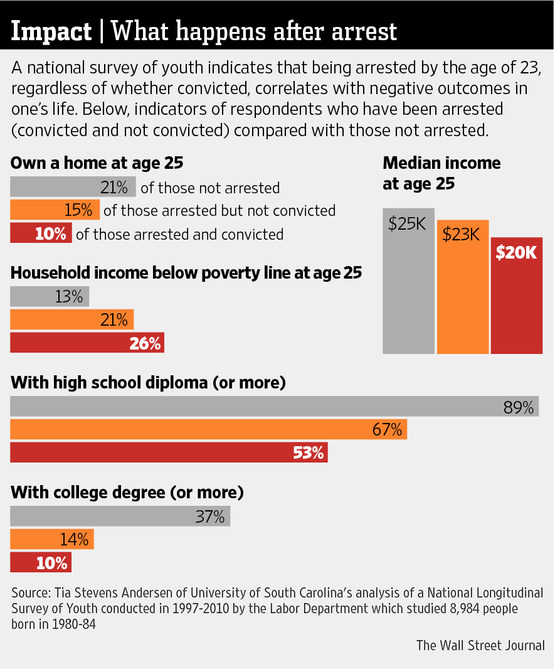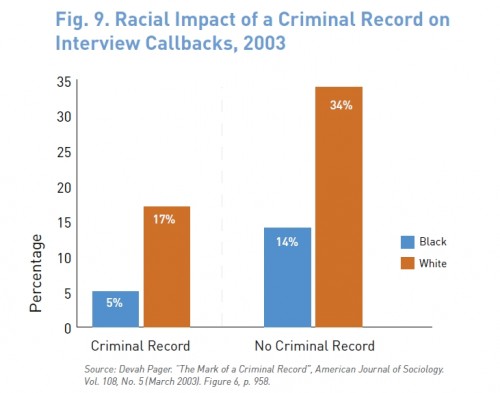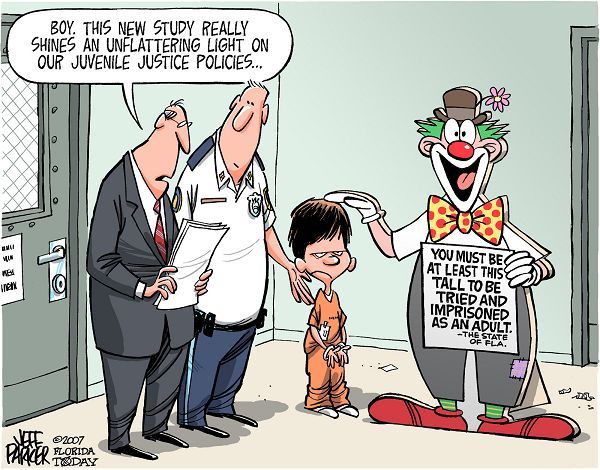Juvenile youth false confessions pdf
J.D.B’s assertion that the risk of false confession is “all the more acute” with a juvenile suspect is well-based in research: The Court relied on a brief submitted by the Center on Wrongful Convictions of Youth (CWCY) that pointed to a series of empirical and laboratory studies that show juveniles falsely confess at a significantly greater rate than adults. 65 These confessions
that a confession made by a juvenile with significant intellectual and social limitations was voluntary—and, if so, whether on de novo review the confession was in-
Distinguishing Between True and False Confessions One of the Chapters in our book, Criminal Interrogation and Confessions, is entitled “Distinguishing Between True and False Confessions”. In an effort to make this information available to all interested parties we have extracted that chapter as a pdf file that you can download and print for immediate reference.
working draft – please do not cite or circulate without permission page 1 ucla law review taking back juvenile confessions kevin lapp about the author
Convictions of Youth, where she specializes in representing juveniles who have falsely confessed to and false confessions, and she has co-authored the only police interrogation protocol aimed at preventing juvenile false confessions. Steven A. Drizin. is the assistant dean of the Bluhm Legal Clinic and a Clinical Professor at Northwestern’s Pritzker School of Law. He is the co-founder of
Recent media coverage has highlighted cases in which young suspects were wrongly convicted because they provided interrogation-induced false confessions. Although youth may be more highly suggestible and easily influenced by authority than adults, police are trained to use the same psychologically coercive and deceptive tactics with youth as with adults. This investigation is the first
Redrich, Allison D, PhD, The Susceptibilty of Juveniles to False Confessions and False Guilty Pleas , 62 Rutgers L. Rev. 943 (2009-2010) Adolescent Development Handouts
A study by researchers at Penn State of 340 exonerations since 1989 found that while 13 percent of adults wrongly confessed, 42 percent of juvenile exonerees gave a false confession. Kids between 12 and 15 were even more likely than 16- and 17-year-olds to falsely confess, according to the study.
Its faculty and students not only represent individual wrongly convicted youth, but they also submit amicus curiae (friend-of-the-court) briefs before courts around the globe, including the United States Supreme Court, which cited the Center as an authority on juvenile false confessions in the 2011 case J.D.B. v. North Carolina. The Center’s faculty are particularly active in the public
2013] JUVENILE MIRANDA WAIVER AND PARENTAL RIGHTS 2361 ing to begin frank conversations with police.16 And even a false incrim-inating statement “leads almost ineluctably to a …
of me being a youth and being naive. . . . I signed the confession under the pretense that I was going to go home later on that night, but it didn’t work that way.‖–Terrill Swift (false confessor) Reform: Crucial Quotes From Graham The Old Stand-Bys from Roper: ―As Compared to adults, juveniles have a lack of maturity and an underdeveloped sense of responsibility; they are more vulnerable
that the defining characteristics of youth are relevant to the Miranda test, and explicitly left open the question of whether children’s immaturity and
Champion Defending Juvenile Confessions After J.D.B. v

JUVENILE POLICE INFORMANTS Friendship Persuasion and
Read “Police practices and perceptions regarding juvenile interrogation and interrogative suggestibility, Behavioral Sciences & the Law” on DeepDyve, the largest online rental service for scholarly research with thousands of academic publications available at your fingertips.
When a juvenile is prosecuted on the basis of a false confession, the true perpetrator remains a hazard to the community, denying the victim justice, magnifying the
Convictions of Youth, where she specializes in representing juveniles who have falsely confessed to and false confessions, and she has co-authored the only police interrogation protocol aimed at preventing juvenile false confessions. Steven A. Drizin is the assistant dean of the Bluhm Legal Clinic and a Clinical Professor at Northwestern’s Pritzker School of Law. He is the co-founder of
Not only are juvenile interrogations under-regulated, in a juvenile justice system that makes a fetish of confession, but false confessions are a deep concern. Reliable answers should not be expected when vulnerable young people are interrogated using high-pressure psychological techniques.
False confessions represent a significant problem for the criminal and juvenile justice systems and juveniles may be at particular risk for falsely confessing.
The Center on Wrongful Convictions of Youth represents many juveniles who have falsely confessed to a crime they have not committed, and are prominent collaborators in the juvenile justice space. Professor Drizin and Co-Director Laura Nirider author numerous amicus curiae briefs and conduct professional training in the area of false confessions and interrogation practices for legal
process analysis, and the heightened risk of unreliable or false confessions from youth. POLICE INTERROGATIONS, FALSE CONFESSIONS, AND THE NEW JUVENILE JURISPRUDENCE Before considering the particular issues faced by judges in cases in which juveniles are interrogated, a brief synopsis of some of the common, modern-day tactics used during custo- dial interrogations is …
A 2006 article in American Psychologistcited a review of exonerations from 1989 to 2004 and found that 42 percent of exonerations of juveniles involved false confessions at the time of the crime, compared with the 13 percent false confessions involved in adult exonerations. “Among the youngest of these juvenile exonerees (12- to 15-year-olds), 69 percent confessed to homicides and rapes that

1. IntroductionThere is increased recognition that false confessions during custodial interrogation do sometimes occur and the consequences can be severe and include wrongful conviction (Drizin and Leo, 2004, Gudjonsson, 2003a, Gudjonsson, 2006, Kassin and Gudjonsson, 2004).
Measuring juvenile justice and community youths perceptions of their false confession risks during police questioning: Psychometric properties and factor structure of the Perceptions of Coercion during the Holding and Interrogation Process (P-CHIP) Instrument
Juvenile Law for Law Enforcement: This part of the training demonstrates recent research on peer pressure and false confessions and shows why using adult approaches with youth often fails or leads to false confessions and exclusion of evidence at trial. It teaches officers more appropriate approaches, including a Miranda warning geared to youth.
The paper argues that in order to minimize juvenile false confessions, states should 1) ensure adequate comprehension of the Miranda warnings, 2) change the police procedures for interrogating juveniles, and 3) videotape all interrogations.
v TABLE OF AUTHORITIES—Continued Page(s) Saul M. Kassin et al., Police-Induced Confessions: Risk Factors and Recom-mendations, 34 Law & Hum.
Second, even if a juvenile makes a statement “voluntarily, knowingly and intelligently,” 6 the reliability of his statements may be questionable. 7 For a variety of reasons, including an incapacity for adult reasoning, susceptibility to suggestion, and a value system misunderstood by adults, a juvenile may give a confession that can be anything from partly untrue to wholly false. 8 This

jurisdiction of the juvenile court.6 Fifteen states have a statutory framework allowing children ranging from age six to 10 to be tried for criminal offenses in the juvenile court.
9/12/2016 · Psychologist Lindsay C. Malloy has devoted her career to improving the treatment of children in the legal system, including the development of …
Commentary: Ethics-Related Implications and Neurobiological Correlates of False Confessions in Juveniles Robert Weinstock, MD, and Christopher Thompson, MD Forensic psychiatrists typically have no role in the process of obtaining confessions. They may believe, as do others, that a confession removes any doubt about guilt, but false confessions are not rare. Like the police, forensic
No confession would be admissible in court unless it was videotaped. Recording the entire interrogation is important to determine whether a child was coerced or pressured into giving a statement, said Benjamin Chambers of the Washington, D.C.-based National Juvenile Justice Network.
with a juvenile is a significant factor in determining voluntariness of a juvenile’s confession.” [46] The Court found that the officer’s phone conversation with the
26/08/2013 · In juvenile justice, kids need protection from false confessions A third of false confessions come from youths under 18. Youths are more easily intimidated and less adept at understanding the
Juvenile False Confessions and Competency to Stand Trial: Implications for Policy Reformation and Research In the 1990s, youth crime rates peaked, which led to an increase in arrests, interrogations, and prosecutions of juveniles (U.S.
The Decline of the Juvenile Death Penalty Scientific
The Center on Wrongful Convictions of Youth (“the Center”) is the only organization in the country dedicated to exonerating wrongfully convicted
This was in consonant with Redlich and Goodman (2003) who assessed false confession between 3 age groups: 12 to 13, 15 to 16 and 18 to 26. the 12 to 1 age group were more prone to false confession. Older juveniles were however more prone to false confession when presented with “evidence. ” Overall, the research found juveniles between the age of 12 and 16 were practically vulnerable to
YOUTH ¡ Proven false confessions § Four mechanisms ¡ Ambiguous/probable false confessions ¡ Risk factors for false confession § Situational § Dispositional ¡ Types of false confessions § Voluntary § Coerced-compliant § Internalized FALSE CONFESSIONS . 4/23/17 8 ¡Youth are overrepresented in documented false confession cases ¡Both laboratory research and youth self-report indicate
5 The Police Interrogation of Children and Adolescents ALLISON D. REDLICH, MELISSA SILVERMAN, JULIE CHEN, AND HANS STEINER For delinquents, law enforcement is the doorway to the juvenile justice system. – always true to you in my fashion pdf JUVENILE COMPETENCY ATTAINMENT, RESEARCH AND DEVELOPMENT CENTER REFERENCE LIST Updated April 2016 Contact James Wellbeloved-Stone (jmw6bh@virginia.edu) with questions or for
The Center on Wrongful Convictions of Youth (CWCY) was created to address the unique problems faced by wrongfully accused youth. Guided by a staff with special expertise in juvenile interrogations, the CWCY is spearheading national efforts to exonerate wrongfully convicted youth …
This study examined whether age, IQ, and history of special education predicted Miranda rights comprehension and the self-reported tendency to falsely confess to a crime among 55 delinquent boys.
Juvenile False Confessions On January 21, 1998, the Crowe family of Escondido, California, awoke to find twelve-year-old Stephanie Crowe dead on her bedroom floor, covered in blood. ‘ 8
A national epidemiological study investigating risk factors for police interrogation and false confession among juveniles and young persons. Gudjonsson et al. by clearly demonstrating that younger youth (14–16) are considerably more vulnerable to giving false confessions than older youth …
By putting a heartbreaking face on the problem of juvenile false confessions, the series reminds advocates of the fierce urgency of the task at hand: working to reform juvenile interrogation techniques before the criminal justice system locks up more Brendan Dasseys.
Interrogations can lead to false confessions by juveniles, study finds FIU News Juveniles may be particularly vulnerable to falsely admitting guilt, according to a study led by Florida International University psychologist Lindsay C. Malloy.
youth,10 the law regarding the waiver of the rights to silence and to counsel at interrogation predominantly treats juvenile suspects like adults. 11 Current Miranda doctrine does not meaningfully accommodate juveniles’ limited cognitive ability to understand their constitutional
children to false confessions and ordered that all custodial interrogations of youth under age 18 must be electronically recorded, when feasible, from start to finish. • Doody v.
In that vein, we posted a few weeks ago discussing what Making a Murderer shows about juvenile confessions—that false confessions by youth can be fairly easily obtained and, consequently, youth need special protections to ensure that this does not occur.
Forensic psychiatrists typically have no role in the process of obtaining confessions. They may believe, as do others, that a confession removes any doubt about guilt, but false confessions are not rare. Like the police, forensic psychiatrists can inadvertently elicit or solidify a false confession
Measuring juvenile justice and community youths
False confessions, which can lead to wrongful convictions and the real perpetrator remaining at large Negative emotional and psychological impacts on youth, including a possible negative
imposed on juvenile offenders and the rate at which juvenile offenders are 302004.pdf (updated May 4, 2004) [hereinafter Streib, April]. 21 Id. at 9 tbl.3, 21, 23.
The Innocence Project supports reforms to improve how all interrogations are conducted, including recording interviews and avoiding long interrogations, deception, leading questions and promises of leniency. The electronic recording of interrogations, from the reading of Miranda rights onward, is the single best reform available to stem the tide of false confessions.
According to both Nirider and Bowman, the reason that standard interrogations often result in juvenile false confessions is simple: standard interrogation tactics—coercion, false promises of leniency, deception about evidence—are intended for adults, not kids.
youth merit distinctive treatment under the law not only in “common sense,” but also in scientific research showing that teenagers are more impulsive, more
Brendan Dassey: A True Story of a False Confession . Additional Written Materials for Continuing Legal Education . Page 1: Reducing Risks: An Executive’s Guide to Effective Juvenile Interview and Interrogation . Page 45: The Truth About Juvenile False Confessions . Electronic recording n Care with nMiranda Presence of a friendly adult n Length of questioning n Time of questioning n Avoid use
“Interrogations, confessions and pleas are aspects of the legal system that generally occur behind closed doors,” Malloy said. “It is important to hear from youth directly about their experiences
false confessions. Two proposals are discussed: a non-waivable right to Two proposals are discussed: a non-waivable right to legal counsel and mandated electronic recording of juvenile interrogations.
Juvenile False Confessions and Competency to Stand Trial

Why are Youth Susceptible to False Confessions
false confessions often elicited from young, unsophisticated children. Dramatic portrayals of police interrogation in movies and television programs bear scant …
Juvenile False Confessions and Competency to Stand Trial: Implications for Policy Reformation and Research In the 1990s, youth crime rates peaked, which led to an increase in arrests, interrogations, and prosecutions of juveniles (U.S. Department of Justice and Federal Bureau of Investigation, 2006).
initiatives – such as efforts to reduce juvenile false confessions and increase reliability in the juvenile court system – aimed at preventing future wrongful
False confession cases involving adolescent defendants, like that of 15-year-old Anthony Caravella, reveal the vulnerabilities of youth in the interrogation room and the need for empirical research to delineate what methods are likely to protect innocent youth from confessing falsely but still elicit detailed information from guilty youth.
I. The Unreliability of Juvenile Statements Boston College

A national epidemiological study investigating risk
iv National Juvenile Defender Center Search for documents You can search by keyword to find relevant documents. Start with the Summaries open on your computer screen,
234 JUVENILE POLICE INFORMANTS Friendship, Persuasion, and Pretense Mary Dodge University of Colorado at Denver The use of juvenile informants by police is rarely discussed among law enforcement, and
Allison D. Redlich, The Susceptibility of Juveniles to False Confessions and False Guilty Pleas, 62 R UTGERS L. R EV . 943 (2010) (reviewing causes of false confessions by juveniles in the
false-confession cases is likely due in part to more scientific research in the area, more extensive attorney training, anecdo- tal data from highly publicized cases (e.g., Central Park Jogger
Juveniles in police custody to get more legal protections


Benjamin E. Friedman UCLA Law Review
WORKING DRAFT – PLEASE DO NOT CITE OR CIRCULATE
python function is true if returns dictionary – Reid Associates Webpage on False Confessions
The Police Interrogation of Children and Adolescents


What ‘Making a Murderer’ Taught Us About False Confessions
Policing the Teen Brain PubMed Central (PMC)
youth merit distinctive treatment under the law not only in “common sense,” but also in scientific research showing that teenagers are more impulsive, more
Juveniles in police custody to get more legal protections
Children under Pressure The Problem of Juvenile False
The Center on Wrongful Convictions of Youth (CWCY) was created to address the unique problems faced by wrongfully accused youth. Guided by a staff with special expertise in juvenile interrogations, the CWCY is spearheading national efforts to exonerate wrongfully convicted youth …
Center on Wrongful Convictions of Youth SCOTUSblog
YOUTH ¡ Proven false confessions § Four mechanisms ¡ Ambiguous/probable false confessions ¡ Risk factors for false confession § Situational § Dispositional ¡ Types of false confessions § Voluntary § Coerced-compliant § Internalized FALSE CONFESSIONS . 4/23/17 8 ¡Youth are overrepresented in documented false confession cases ¡Both laboratory research and youth self-report indicate
Center on Wrongful Convictions of Youth Bluhm Legal
Gerald Gault Meet Brendan Dassey Preventing Juvenile